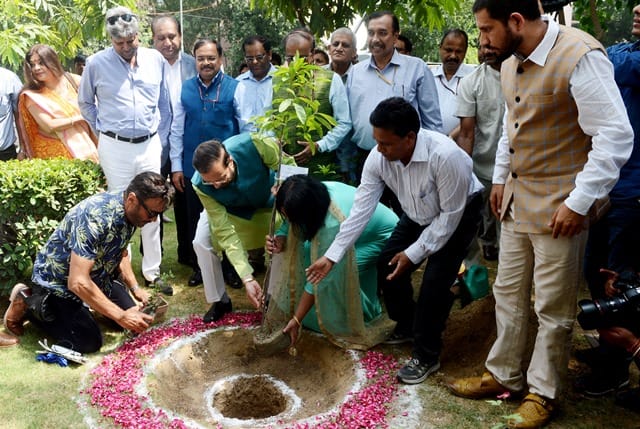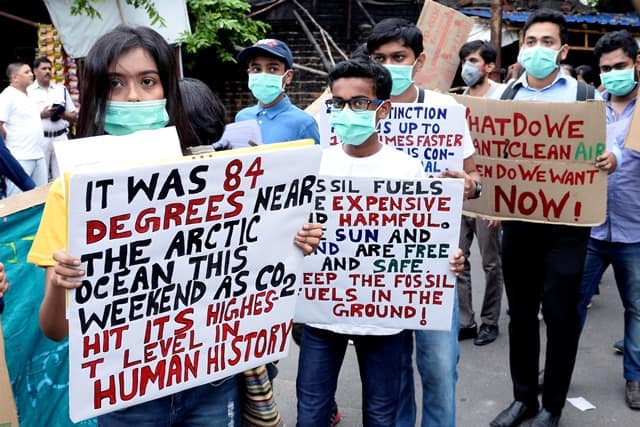
Month: June 2019

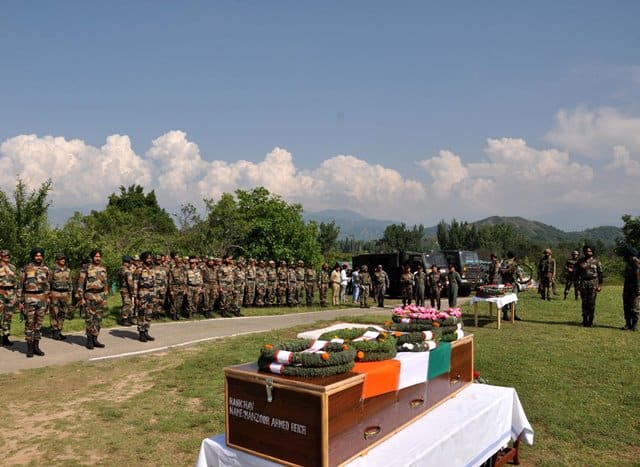
Army Pays Tributes To Fallen Kashmiri Soldier
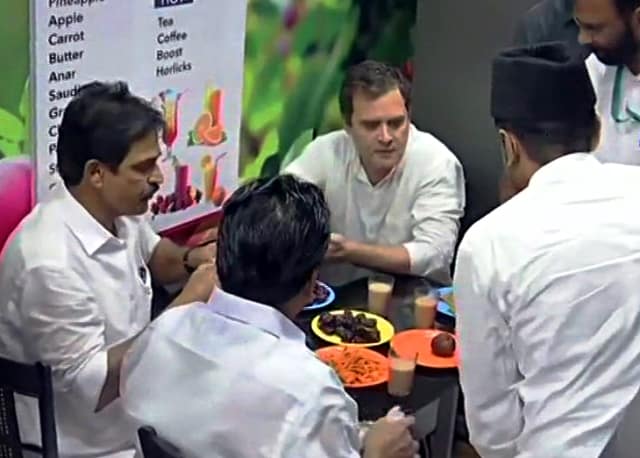
Rahul Visits Wayanad To Thank Voters
“The current government and Mr Narendra Modi spread hatred in the country and the Congress party knows and understands that the only way to combat hatred is through love and affection,” he said while addressing people in Nilambur.
Gandhi, who had offered to resign from the Congress chief’s post which was rejected by the Congress Working Committee, however, made no reference to the crisis in the party and gave no signs whether he would insist on his decision to quit.
“We’re committed to defending space of opposition, defending weak people in this country, defending people who are under attack by Mr Modi’s policies and Mr Modi himself. I look forward to representing you and working with you to build a better Wayanad,” he said.
Gandhi, who is here to express gratitude to people after the poll win, said that he will represent the difficulties of the people of Wayanad in Parliament.
“I am MP from Congress party but also I am a Member of Parliament (MP) from the UDF and more importantly I am an MP who represents Wayanad and people of Kerala in Lok Sabha. I am going to spend my time listening to the people of Wayanad. I will represent your need and difficulties in Parliament,” he said.
“I look forward to representing you and working with you to build a better Wayanad,” the Congress president said.
Earlier in the day, Gandhi also addressed people in Wandoor Assembly constituency. He was accompanied by Congress general secretary KC Venugopal, Kerala’s Leader of Opposition Ramesh Chennithala, Kerala Congress Pradesh Committee (KPCC) president Mullappally Ramachandran and party leader and former Minister AP Anil Kumar.
During his visit, Gandhi will take out road shows in all Assembly constituencies under Wayanad Lok Sabha seat to thank people for electing him as their parliamentarian.
“I will be in Wayanad, Kerala starting this afternoon and till Sunday to meet citizens and Congress Party workers. It’s a packed schedule with over 15 public receptions planned over the next 3 days,” Gandhi had earlier tweeted.
Gandhi, who netted 7,05,034 votes in Wayanad, won by 4,31,063 votes against his nearest rival PP Suneer of Left Democratic Front (LDF) in the constituency.
This is the first official public address of the Congress president after Union Minister Smriti Irani wrested his family bastion of Amethi in Uttar Pradesh. In Kerala, Congress-led United Democratic Front (UDF) bagged 19 out of the 20 seats. (ANI)
]]>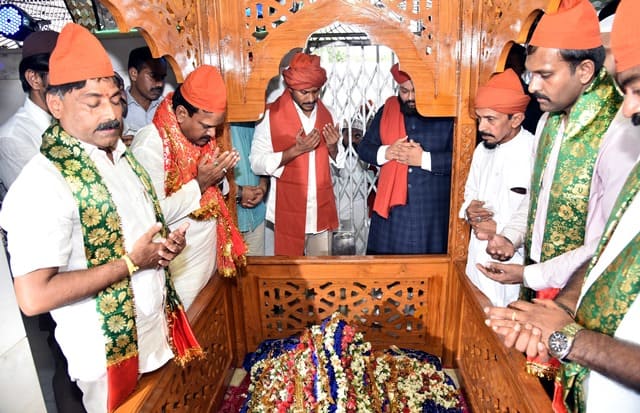
Andhra To Have Five Dy Chief Ministers
This was disclosed on Friday by YSCRP MLA Ramakrishna Reddy, who said there will be 25 ministers in the state.
He said that all five deputy CMs and 50 per cent of the ministers will be from Scheduled Castes, Scheduled Tribes, Backward Castes, minority and Kapu community
“25 MLAs will take the oath of office and secrecy tomorrow as ministers and five MLA will take as the Deputy Chief Minister. The Chief Minister has chosen all five Deputy CM from SC, ST, BC, minority and Kapu community. And also 50 per cent of the minister has been chosen from these community,” Ramakrishna Reddy said.
Hailing the chief minister’s decision, MLA M M Shaik: “We are happy with his decision. He (Jaganmohan Reddy) will prove to be the best CM in India ever.”
The decision was taken during the YSRCP legislature party meeting convened by Jaganmohan Reddy, which was attended by all the 150 elected MLAs at Jagan camp office in Tadepalli, Amaravati.
In the Andhra Pradesh Assembly election, Reddy’s YSRCP got an absolute majority by winning 151 out of 175 seats.
On May 30, the YSRCP chief took oath as the second chief minister of Andhra Pradesh since its bifurcation.
(ANI)
]]>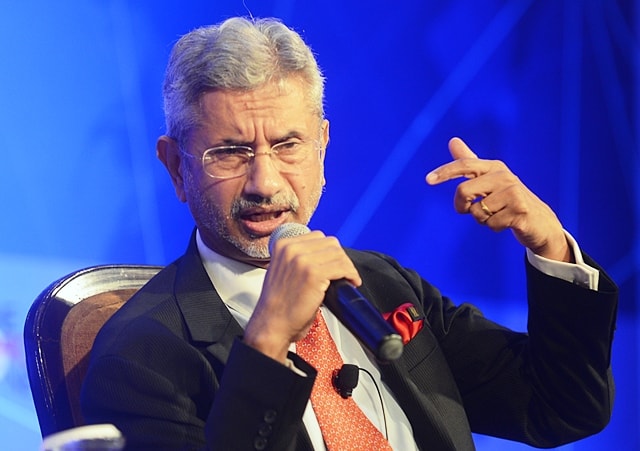
Can Jaishankar Pass Muster As A Politician?
It is fascinating the way the world forms a significant part of an Indian’s life, despite a vast terrain and diversity of its own. Having sailed and traded in the past, sent soldiers in the two World Wars and huge diasporas have helped in developing this worldview. Despite the traditional curse on crossing the seas, ‘Vilayat’ not necessarily the West, has always ignited aspirations.
Post-independence, it is equally fascinating that although foreign policy as such has rarely impacted domestic political/electoral discourse, foreign affairs players, including retired diplomats, belonging to one of the smaller central government services, have participated in it, rather disproportionately when compared to, say, lawyers and farmers who have dominated the political scene.
ALSO READ: Foreign Policy Challenges Before Modi 2.0
Prime Minister Narendra Modi’s choice as External Affairs Minister of Dr Subrahmanyam Jaishankar, who retired as Foreign Secretary last year, is the latest move. It will majorly help in foreign policy formulation in very challenging times.
As India led the de-colonization process, first prime minister Jawaharlal Nehru, deeply conscious of its place in the comity of a post-war world, was his own foreign minister. His successors did have cabinet rank external affairs ministers, some of them really erudite, but the PM and the PMO have had the final word on policy matters.
ALSO READ: New Delhi’s Pragmatism On BIMSTEC Invites
Inputs coming from foreign office and their contributors have always been crucial irrespective of the PM and his/her personality. Indira Gandhi had P N Haksar as her principal secretary and Rajiv Gandhi had three bright diplomats in his PMO. Narasimha Rao piloted an India without the friendly Soviet Union and launched the Look East Policy. I K Gujral was a diplomat-politician first before becoming the premier and Manmohan Singh worked the economy at home and at global conferences before taking up the big post. He was heard with respect during the 2007-2008 global economic slowdown.
Let it be stressed that in this politician-officer combine, most officers have left final decisions to politicians. With valuable insights and inputs coming from foreign affairs practitioners, the final say, as in military affairs where men in uniform matter, has always rested with the political leadership. And that is how it should be in a democracy where the politician, unlike the official, is elected and answerable.
In that sense, Jaishankar’s task will not be very different. The difference will be in deeper, bolder foreign office inputs.
Jaishankar joins a select group of diplomats-turned-politicians. At the top is K R Narayanan. A Nehru-pick, he moved from diplomacy to academics (Vice Chancellor, Jawaharlal Nehru University) to be a minister, then as the Vice President and finally, the President.
Hamid Ansari’s trajectory was similar, as vice president via vice chancellorship of Aligarh Muslim University. Incidentally, he held office when Meira Kumar, a middle-level officer in the foreign office, was the Lok Sabha’s first woman Speaker. She has won and lost the Lok Sahha seat her father, Babu Jagjivan Ram, represented.
Arguably though, the PMO route to politics is discernible. A solitary M L Sondhi, groomed in Nehru’s PMO, chose to join the opposition. Kunwar Natwar Singh, once in Nehru’s PMO, was external affairs minister in Manmohan Singh’s government along with Mani Shankar Aiyar, who was in Rajiv’s PMO. Some who did not join politics, got key postings post-retirement.
Although a complete ‘outsider’ at the foreign office, Shashi Tharoor was groomed at the United Nations. He fought Ban-ki-Moon valiantly before losing the Secretary General’s post. A junior minister supervising foreign office under Manmohan Singh, he has been re-elected to the Lok Sabha for the third time.
Close to foreign office but in many ways more powerful has been the position of the National Security Advisor (NSA) — because there is only one such office! Former diplomat Brajesh Mishra, the first NSA enjoyed proximity with then premier Atal Bihari Vajpayee. He overshadowed ministers Jaswant Singh and Yashwant Sinha.
The post was ably held by two other retired foreign secretaries, J N Dixit and Shivshankar Menon. Indeed, it has alternated between retired diplomats and intelligence sleuths for good reasons. M K Narayanan held that post. Jaishankar will work in tandem with Ajit Doval, the NSA who has just got a five-year extension and cabinet rank.
New to national arena and to diplomacy when he became the PM, Modi has since befriended many world leaders, not without crucial inputs from his envoys. He also placed his faith in another retired ace diplomat, Hardeep Singh Puri, a minister in his government.
His foreign office choices during the first tenure included Jaishankar, recalled as ambassador to the US to be the Foreign Secretary, even sacking incumbent Sujata Singh in the process. Navtej Sarna moved briskly from the high commission in London to Washington and Syed Akbaruddin, the ministry spokesman moved to the higher post of Permanent Representative at the United Nations.
As the first retired foreign secretary to head the same ministry, Jaishankar will be on familiar turf and will be Modi’s chief foreign policy executioner. His USP is being son of and having learnt baby steps and more from late K. Subrahmanyam, doyen of India’s national security community.
His global perspective can be judged from the languages he knows. Besides English, he speaks Tamil, Russian, Hindustani, Mandarin, Japanese and Hungarian. His first posting was at Moscow. He worked the US as Joint Secretary (Americas) negotiating the civil nuclear treaty. When Donald Trump’s victory alarmed the world and even diplomats turned undiplomatically abusive of him, as India’s Foreign Secretary, Jaishankar advised that it was essential to “understand and assess” Trump.
He should help Modi to consolidate and further deepen Indo-US ties, something his father would have approved. He has already hit the ground running what with Trump ending India’s preferential trade concessions.
Jaishankar is also a solid China hand, having been the ambassador in Beijing and worked with other China hands, Shivshankar Menon and Nirupama Rao. With Vijay Gokhale, the current foreign secretary and one who succeeded him as ambassador to China, he should make a formidable team.
With his appointment, Modi has sent a clear signal to both Washington and Beijing amidst a fierce trade war. Jaishankar’s stints in Prague and in Singapore and at some stage, in Tokyo, should help India play its cards well in a complex world.
Along with proximity to the US and a careful balancing act with China. India will continue to stay away from Beijing’s signal Belt and Road Initiative.
The Quad framework derives its geopolitical validation from India’s association and presents a unique opportunity for India to be an active participant in shaping regional security architecture with global undertones. This emphasis on Indo-Pacific is expected to be strengthened in his second term.
Surely, the other regions will also receive his stamp. The ‘Neighbourhood First’ and ‘Act East’ policies are expected to continue with greater vigour.
As for Pakistan, Modi in his second term is bound to continue with a muscular approach. He may mend relations only if there is visible change in its current policy of exporting terrorism to India. To prevent Uri, Pulwama and Pathankot, and respond if they do recur, is the challenge for the Jaishankar-Doval duo.
In political terms, Jaishankar, the only minister not elected to either house of parliament, will need to get elected to one. And lacking political experience, will have to face the Opposition. But more important is his place in the Cabinet Committee on Security, the core policy making body that Modi chairs.
The writer can be reached at mahendraved07@gmail.com
]]>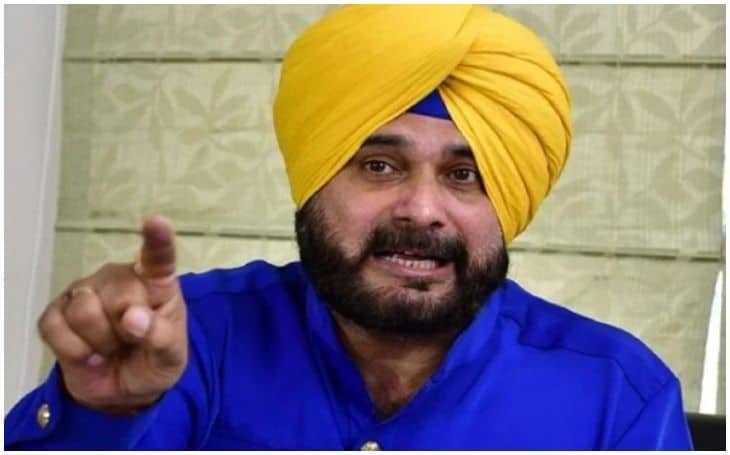
Capt Changes Sidhu Profile In Cabinet
The decision was taken by the Chief Minister after Sidhu skipped a Cabinet Meeting and launched a veiled attack on Singh by saying he has been singled out publicly for his ministry’s alleged failure that led to Congress losses in urban areas and that he could not be taken for granted.
Singh and Sidhu have been at loggerheads since his controversial visit to Pakistan for the swearing in ceremony of Imran Khan where he had hugged the Army Chief that led to a huge controversy in India. It fuelled further during the elections when Siddhu and his wife accused the chief minister of having had a hand in the denial of ticket to her to contest the Lok Sabha elections from either Chandigarh or Amritsar.
“The Chief Minister, who had hinted at changes in the portfolios of his Council of Ministers after the completion of the poll process, has allocated the crucial Local Government to his senior-most colleague, Brahm Mohindra, who was earlier handling Health and Family Welfare, which has now been entrusted to Balbir Sidhu,” an official released said.
“Local Government was earlier with Navjot Singh Sidhu, who now gets Power and New and Renewable Energy Sources. His other previous portfolios of Tourism and Cultural Affairs go to Charanjit Singh Channi, who retains Technical Education, Industrial Training and Employment General, with his Science and Technology portfolio taken over by the Chief Minister,” it stated.
Earlier in the day, Sidhu who did not attend the Cabinet Meeting said his department has been singled out and that he cannot be taken for granted.
“We swim and we sink together… It is a collective responsibility. My department has been singled out publicly. One must have the ability to see things from the right perspective. I cannot be taken for granted. I have been a performer throughout. I am answerable to the people of Punjab,” he said.
In Punjab, Congress won eight parliamentary seats out of 13 while, four seats went to BJP-Shiromani Akali Dal (SAD) alliance while AAP bagged a seat- Sangrur.
Amarinder hoped the exercise would also re-energise his team and bring freshness into the working of the major departments.
“Balbir Sidhu’s portfolio of Animal Husbandry, Fisheries and Dairy has been entrusted, under the new scheme of things, to Tript Bajwa, along with Higher Education. Bajwa also retains Rural Development and Panchayats,” the release said.
“However, Bajwa has been divested of Housing and Urban Development, which the Chief Minister has handed over to Sukhbinder Singh Sarkaria, in place of Revenue, which goes to Gurpreet Singh Kangar, who is also handling Rehabilitation and Disaster Management,” it said.
The Chief Minister has taken Governance Reforms and Information Technology in the Cabinet reshuffle.
“Manpreet Singh Badal continues to take care of Finance, Planning and Programme Implementation but the Chief Minister has decided to take Governance Reforms into his own fold. School Education has been shifted from Om Prakash Soni to Vijay Inder Singla, who retains Public Works but hands over Information Technology to Captain Amarinder,” the release read.
Soni will now take care of Medical Education and Research, Freedom Fighters and Food Processing departments.
“In addition to Sports and Youth Affairs, Rana Gurmeet Sodhi will now also be in charge of NRI Affairs, which was under the Chief Minister’s purview earlier. Transport has been moved from Aruna Chowdhary’s basket and handed over to Razia Sultan, who retains Water Supply but has been divested of Higher Education. Aruna Chowdhary takes over the Social Security, Women and Child Development departments,” the release further said.
(ANI)
]]>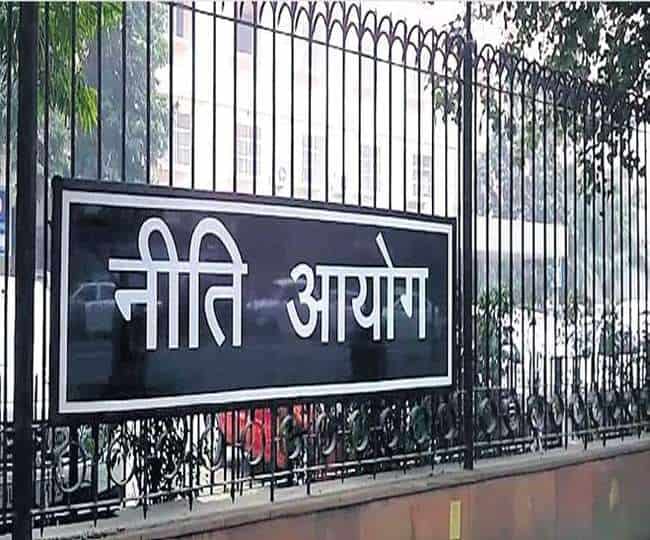
PM Modi Reconstitutes Niti Aayog
An official release said that Modi who will continue to be Chairman has retained VK Saraswat, Ramesh Chand and Dr VK Paul.
Defence Minister Rajnath Singh, Home Minister Amit Shah, Finance Minister Nirmala Sitharaman, Agriculture Minister Narendra Singh Tomar will be ex-officio members of the reconstituted body while Transport Minister Nitin Gadkari, Social Justice Minister Thaawar Chand Gehlot, and Commerce Minister Piyush Goyal will be special invitees.
Minister of State for the Ministry of Statistics, Rao Inderjit Singh, will also be a special invitee.
The reconstitution comes ahead of the first meeting of NITI Aayog’s Governing Council on June 15, after the Modi government returned to power following the elections.
Chief Ministers of all states, Governors, Lieutenant-Governors, Union Ministers, and senior officials are slated to participate in the meeting.
The National Institution for Transforming India (NITI) Aayog was formed via a resolution of the Union Cabinet on January 1, 2015, by the Modi government after scrapping the Planning Commission, which was instituted in 1950.
(ANI)
]]>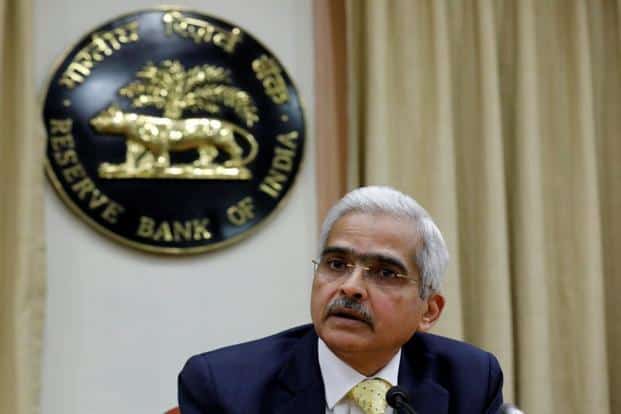
RBI Cuts Repo Rates By 25 Basis Points
The six-member monetary policy committee (MPC) headed by Governor Shaktikanta Das concluded its second meeting for the fiscal year 2019-20. On February 7 and April 4, the central bank had reduced the key lending rate by 25 basis points to infuse liquidity and push growth.
Repo rate is the rate at which the RBI lends money to commercial banks. A repo rate cut allows banks to reduce interest rates for consumers on loans, and lowers equal monthly instalments on home loans, car loans and personal loans.
India’s economy grew just 6.8 per cent in 2018-19, according to government data. In the fourth quarter (January to March), the growth dipped to 5.8 per cent, marking a five-year low.
Meanwhile, headline inflation stood at 2.9 per cent year-on-year in April, below the RBI’s target of 4 per cent.
Industry leaders say a substantial cut in the repo rate and bank lending rates are needed to boost manufacturing and domestic demand and bolster economic growth.
However, there is another concern among government officials that commercial banks with massive bad debts and weak deposit growth are not automatically passing through the RBI’s repo rate cuts to borrowers.
(ANI)
]]>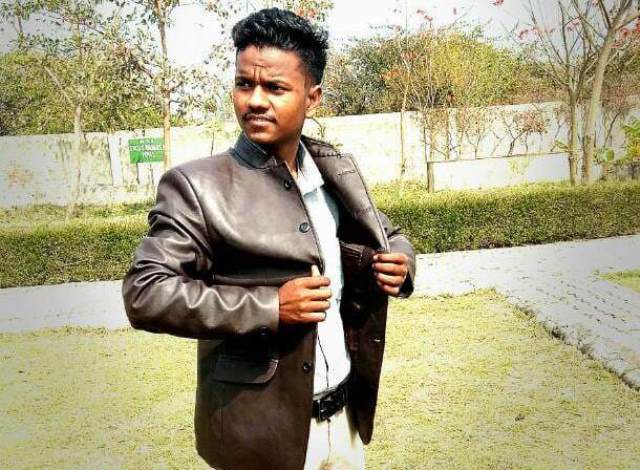
Swachh Bharat – ‘It's A Great Initiative’
Pankaj Kashyap, a 21-year-old student in Uttar Pradesh, says in spite of all its shortcomings, Swachh Bharat must be pursued more vigorously in the next five-year term of Narendra Modi government.
I have mixed reactions regarding the Prime Minister’s Swachh Bharat Abhiyan. On one hand, I am happy that we can now avail the benefits of having a toilet in our own house but on the other the government hasn’t put much thought into handling the water shortage problem, especially in the summer.
We have to lift heavy buckets and carry water to the toilet every time we need to use it. We do not have tap water supply to the washroom. So, it gets especially difficult for the elderly and children. In nearby villages, people got toilets constructed in the backyard or a little away from their homes as they consider it unhygienic or unholy to have a toilet inside the house. Carrying buckets in such households is more troublesome.
In rainy season, when the ground is slippery, holding one’s balance with filled buckets can be risky for women, children, the elderly and the sick. I feel that whenever a government introduces a new scheme, they should look at every aspect of it and make it fool-proof.
They can do this by involving citizens in policy making. A panchayat-level meeting can be organized to take inputs from people. Besides, the topography as well as the natural resources of a place should be kept in mind. Just construction of concrete structures isn’t enough. Such toilets only jack up numbers in government registers, not add to people’s convenience.
Our toilet had got constructed within 15-20 days of applying for it but it wasn’t a smooth process. As soon as the grant to build the toilet was sanctioned, the village pradhan took a commission of ₹2, 000; we had to get the construction done by the remaining ₹10, 000. That did affect the quality of the structure. But then, no commission means no toilets. And we are happy to see one in our house. Post many toilets in our village, one can see a change in streets. Earlier, children could be seen squatting at drains as they could not go out to the fields. Use of personalised toilets has helped a great deal in maintaining better hygiene.
However, I do not see any improvement when it comes to public utilities. Toilets in trains, at bus stops or other public places remain as unworthy of use as ever. Nobody thinks about the next person coming in to use the facility. I wish the government did something about that too.
Personally, I have tried to bring about small changes regarding cleanliness. I try to make people aware of the menace of spitting paan and guthka. Once a place has guthka stains, the area by default becomes a dumping zone. I also take care to never litter while travelling as well as segregate waste into bio and non-biodegradable waste while I am at home. I make it a point to be part of a few cleanliness campaigns as a citizen volunteer. And I believe this behavioural change in me came from the Swachh Bharat campaign. I strongly feel despite all its shortcomings, Swachh Bharat must be more vigorously pursued in the next five years of Modi government.
]]>
